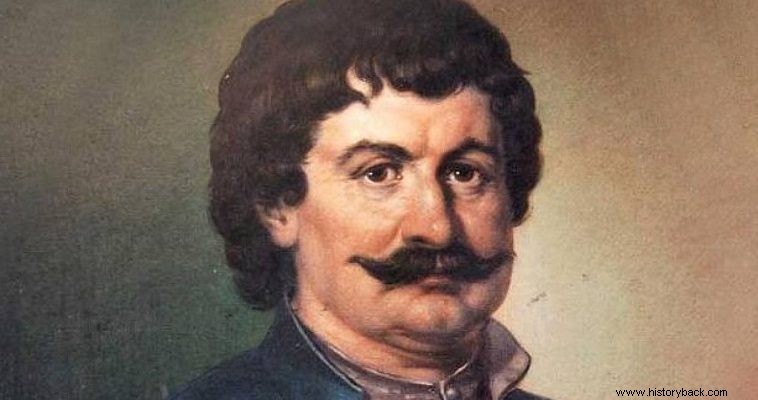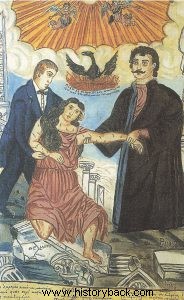
Already before the Fall of the City, the Antichrists expressed their preference for the Turkish conquest over the malicious Roman Catholics. It is not by chance that after the Fall, Mohammed II the "conqueror" chose as patriarch Gennadios Scholarios, a fanatical supporter of anti-Western policy, who during the siege displayed an attitude bordering on treason.
During the centuries of Turkish rule, the position of the Ethnararchous church did not change, sometimes out of necessity. So the conquest was justified as a divine concession due to the sins of the Roman people and the doctrine of submission to Turkish power was promoted.
With the exception of shining examples of patriarchs the attitude of the Ecumenical Patriarchate did not change significantly during the centuries of slavery. In many cases this was done because there was simply no other choice.
But there were also cases of obscene teaching of submission and attack against those who reacted, such as that of Maximus of Peloponnese against the revolutionary bishop Dionysius the so-called "dog-sophist".
With the advent of the Enlightenment, however, the position of the Patriarchate became dire. The preaching of freedom of people and peoples spread. Ethnomartyr Rigas Feraios publishes his "constitution" and his Charter. Against him are all the forces loyal to the doctrine of submission.
In 1798 the Patriarchate publishes the "Patritical Teaching" a work that if the Turkish sultan had written it probably would have been more gentle... "God exalted this kingdom of the Ottomans more than any other, in order to prove beyond a doubt that it was created by God's will... in the current century another cunning and fraud was devised, that is, the now-legendary one at the dawn of freedom... a lure of the devil and a medicine destruction to precipitate the peoples into perdition and disorder... Brethren do not be misled... close your ears and do not give any hearing to these new-found hopes of freedom... keep firm the faith and as followers of Jesus Christ unsullied submission to the political administration ...", he wrote among other things.
Adamantios Korais gave an answer to the miserable, regardless of its expediency, this work with "Brotherly Teaching". The teacher of the genre writes:"The pro-Turkish writer tried to put to sleep the righteous indignation of the Greeks... the tyrants have the inalienable right to ask for all ways to break the yoke of tyranny..." .
Referring to Rigas and his companions, he wrote:"Perhaps at this time, these brave martyrs of Freedom are present as captives before the tyrant. Perhaps at this time the executioner's knife descends on their sacred heads, the brave Greek blood is shed..." .
The answer to Korais was again given by the Patriarchate through a new text with the title "Christian Apology" where the doctrine of slavish submission to the Turks is consolidated. According to the author of the "Christian Apology" (probably Athanasius of Parius) people are not born and cannot be free, people are not equal.
In the same year, a patriarchal letter condemned the "constitution" (New Political Administration) of Rigas Feraios. in which he fiercely attacks the now dead Rigas Feraios, even justifying his death by the Turks.
"Divine Providence had mercy on the Christian race and before those evil-looking clubs (meaning the club of Hercules, symbol of Riga) were spread to the world, this anti-God skevoria was made and revealed and they were delivered to the fire. And those who opposed the despots themselves, who favored the common and the new, stabbed, stabbed, wide wage of their absurd zeal...".
One of the reasons that the Patriarchate was against the idea of revolt against the Turks was its will to protect the Greeks from the Turkish massacres. Another reason was his distaste for everything Western .
It is true that during the time of the Turkish rule the patriarchate issued hundreds of letters and writings against the West and the Roman Catholics, but few that refuted Islam . And yet the danger to the genus was not to "block", but to "turkey".
And those who were blocked, scholars in the majority of them, continued to fight for the homeland and from Europe. However, the Turks, who were also the vast majority of the living casualties of the Greek race during the centuries of slavery, were lost forever...
The Turkema was not just a change of religion... Unfortunately, such attitudes exist to this day with a portion of some even extolling Alosis as psychologically beneficial for the Greeks.

Rigas and Korais lift up the afflicted Greece. Painting by the popular painter Theofilos.
